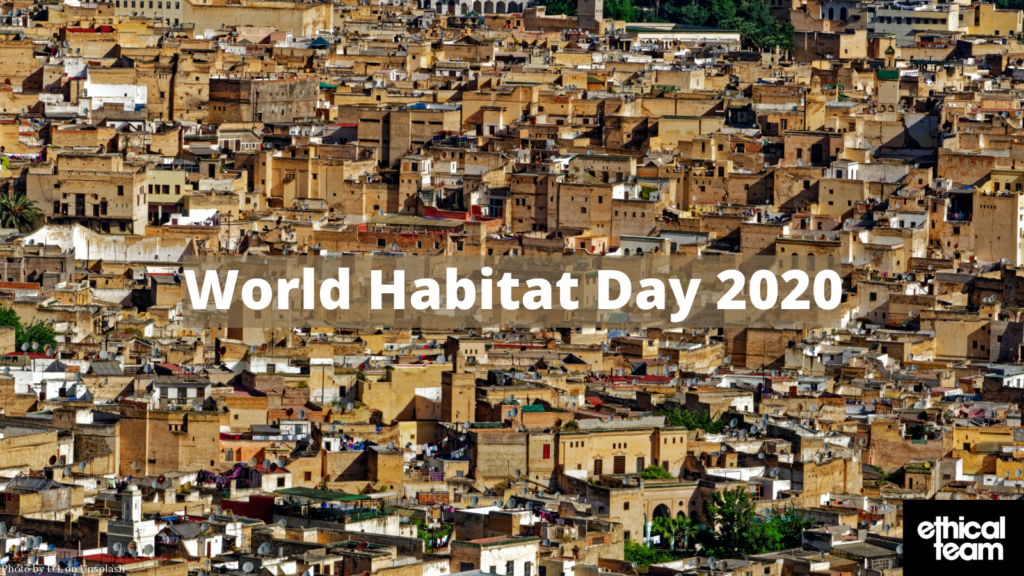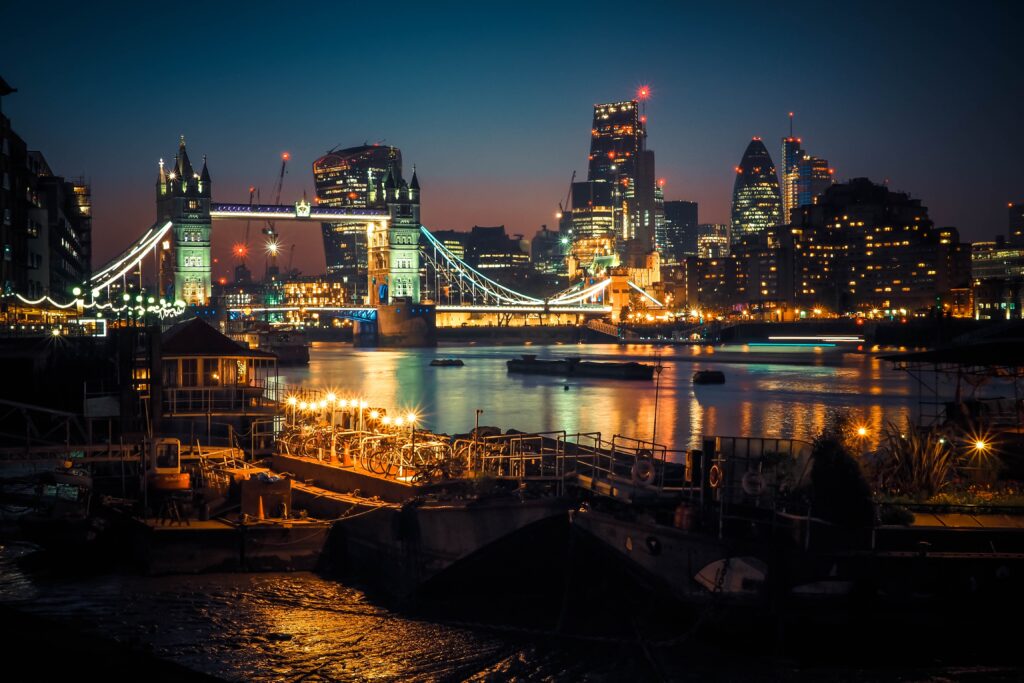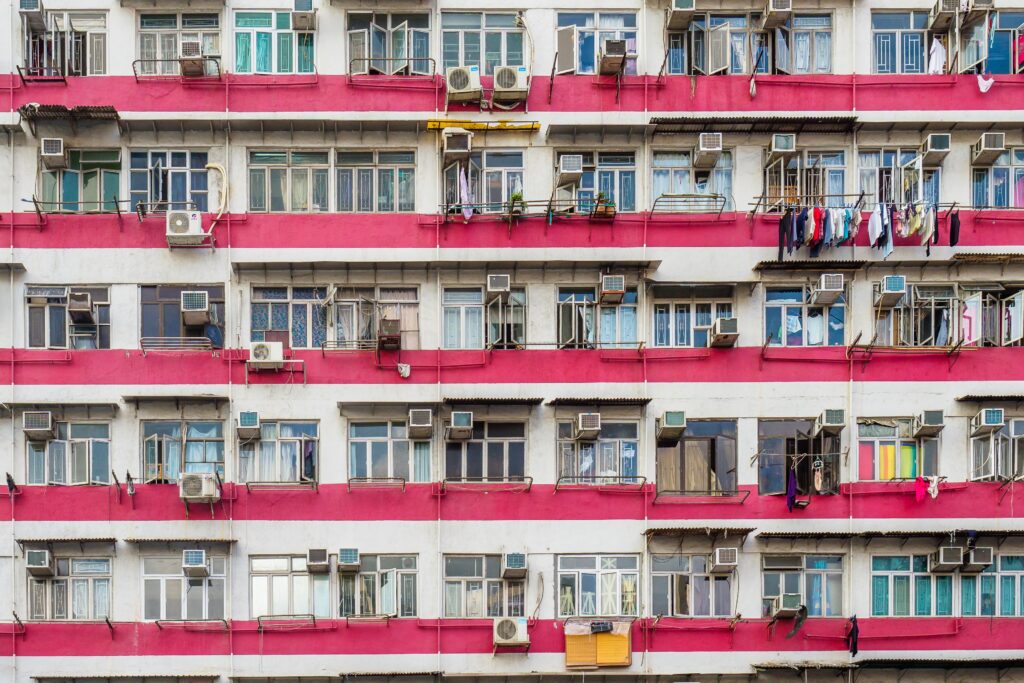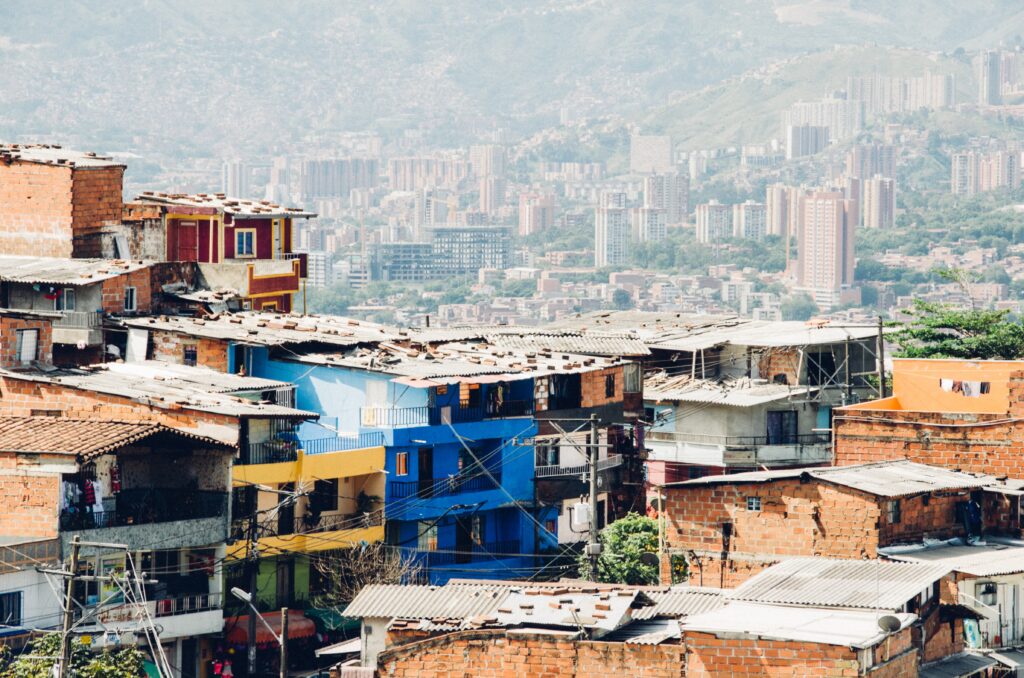Recognising UN World Habitat Day during COVID 19 and that cities must provide a safe haven for everyone this Oct 5th
By Jessica Tinkler MSc Climate Change: Impacts, Adaptation and Mitigation Graduate (Ethical Team Intern Associate)

This year’s UN World Habitat day is, unfortunately, falling in the midst of the COVID-19 pandemic and shrouded in uncertainty for many people around the world whose lives have been interrupted and destabilised. As interventions have forced the global population to stay at home, the reality is that many people live have inadequate accommodation and are homeless. Before the pandemic, 1.8 billion people were living in slums globally or informal settlements. The need for safe housing for the nearly 8 billion inhabitants of the planet has never been more apparent.

In fact, the message of COVID-19, here in the UK at least, has been “Stay home, Save Lives.”. For this message to be successful, it requires millions to stay home. But for those inhabiting overcrowded spaces, tower blocks, unstable and inadequate housing, this has been a trying time. Coupled with the impending economic crisis threatening the livelihood and security of many, living through the pandemic has been hard.

Insufficient housing has further widened the gap and pushed millions to the brink of poverty globally. Controlling the transmission of coronavirus is dependent on social distancing and hand cleaning, without these facilities slums, high-rise tower blocks and informal settlements have become potential COVID 19 breeding grounds among the poor.
“Housing for All: A Better Urban Future”
The theme for the 2020 World Habitat Day is “Housing for All: A Better Urban Future”, which promotes housing as the foundation of equality, sustainability and wellbeing for every person.
The demand for adequate housing would require the equivalent of 96,000 housing units being built every day to meet global population growth and develop slums and informal settlements. Currently, 55% of the global population live in urban areas, and this is projected to increase further to 68% by 2050. This anticipated expansion could have devastating environmental consequences in terms of both land-use change and climate change unless dramatic policy decisions are taken. The climate change agenda demands improved urban areas and renewed housing to reduce the considerable emissions from urban areas. This could have a dual benefit in the future, in that adequate housing can reduce a person’s vulnerability both to pandemics and to climate change.

In terms of equality, urban development must also account for the distribution of these changes; population growth is anticipated to increase most dramatically in low- and middle-income countries and among the poor globally, so these areas face the most pressing challenge to sustainably source housing, infrastructure and amenities for millions more people.
The links between the destruction of nature and habitat loss and the development of COVID-19 have been made explicitly clear. While modern urbanisation must prioritise vulnerability reduction, it is also important for ecosystem disturbance to be kept to a minimum. Protecting and conserving the natural areas which remain and integrating nature-based solutions into cities will reduce the vulnerability of people to climate change. It will also reduce the urban heat island, the impact of flooding, shelter communities from extreme events, and allow nature to thrive, supporting our food systems, regulating the climate, and providing clean water and wellbeing.
How will cities adapt post COVID?
Clearly, there are many factors to be considered with to ensure sustainable urban development; the environment, adequate health interventions and equality of provision. Sustainable urban growth is possible if sustainable urban planning is underpinned by integrated and collaborative working across different sectors to reach mutual goals and provide better urban areas for every single person. A utopian dream?
Join Mailing List
